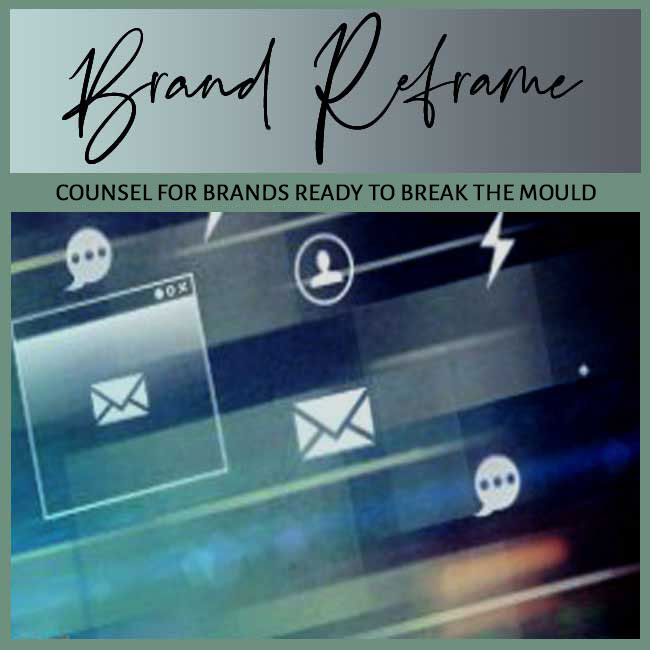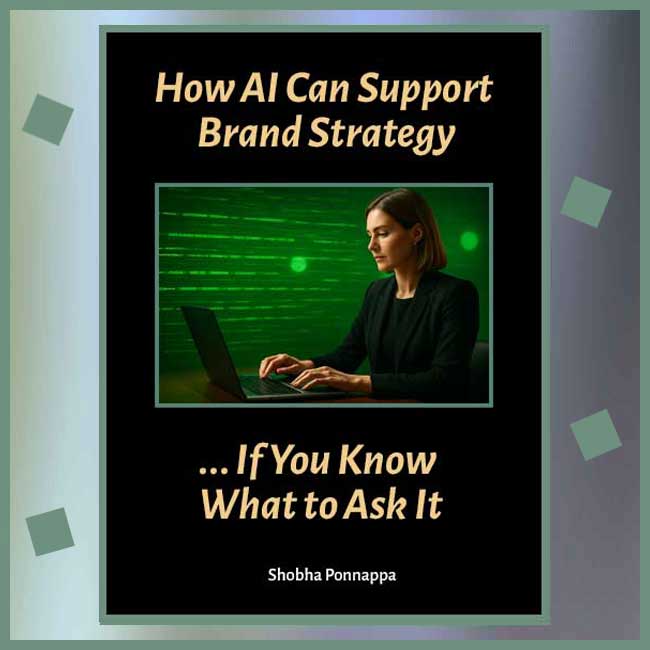
FOCUS: BRAND STRATEGY MISFIRES | AUDIENCE: INVESTORS IN SLUGGISH BRANDS
BY: SHOBHA PONNAPPA | BRAND BREAKTHROUGH STRATEGIST | 45 YEARS | 125+ CLIENTS
I answer 6 tough questions about how a founder’s personal decision-making habits can slow down growth and brand momentum.
I often see brands where the founder’s instinct, once a source of brilliance, becomes a brake on progress. Their judgement is sharp but overly centralised, making every choice pass through one person. This slows innovation, frustrates teams, and discourages ownership. When control becomes caution, momentum dies. The founder’s need for certainty slowly replaces the company’s need for speed.
It happens subtly, through decision density. When every issue … from creative design to contract approvals … must go through the founder, execution bottlenecks form. The business begins to orbit around feedback cycles instead of progress. Excessive central control kills natural flow.
I’ve seen capable founders delay projects not because they lack trust, but because they fear inconsistency or risk. Ironically, this paralysis masquerades as precision. The faster a company grows, the more dangerous this habit becomes. Delegation is not dilution; it is multiplication.
Investors read performance signals without emotional bias. They see stagnation not as a personal failure but as a pattern of structural friction. Their biggest red flag is when brand velocity falls while meetings multiply. More discussions, fewer decisions … that’s the first symptom of founder drag.
Founders often rationalise these delays as due diligence or quality control. But investors see missed market timing, delayed launches, and shrinking competitive windows. They know that speed compounds, and every hesitation widens the gap between potential and performance. Momentum is an asset that depreciates daily when overmanaged.
Externally, inconsistency becomes visible through fragmented campaigns, erratic launches, or mixed messages. Customers sense uncertainty even if it is never spoken. Brands built on founder charisma begin to look fatigued or reactive. Decision inconsistency erodes brand authority.
The outside world judges not intention but execution rhythm. Every pause, pivot, or reversal creates confusion about the brand’s direction. Predictability builds confidence; inconsistency breeds scepticism. A brand led by hesitation looks smaller than it is.
The first is the loop of “approval addiction” … teams waiting endlessly for feedback that never arrives. The second is “reversal behaviour,” where yesterday’s yes becomes today’s no after a new idea strikes. The third is “perfection paralysis,” where nothing feels good enough to release. These three loops are silent profit killers.
When teams adapt to these rhythms, they begin self-editing and stop taking initiative. Meetings replace movement. Founders, thinking they are guiding, are actually micromanaging innovation out of existence. Momentum dies not from incompetence but from indecision.
Yes … but it requires designing frameworks that honour instinct while enforcing pace. The founder’s vision remains central, but decisions flow through structured accountability. When instinct is channelled, not scattered, it becomes scalable. Systems amplify intuition when built on trust.
I help brands implement tiered decision systems: strategic calls stay with the founder, while operational calls move to empowered leads. The clarity reduces friction and preserves founder oversight. Decisions become quicker, cleaner, and more defensible. Structure gives speed the confidence of direction.
Investors can shift from critique to coaching by reframing the founder’s role from “chief decider” to “chief enabler.” This mindset redefines leadership as the art of empowering, not approving. Instead of waiting for progress, investors can sponsor external coaching or operational mentorship. When founders grow, brands accelerate.
The most effective interventions create safe zones for delegation. With shared scorecards and measurable outcomes, founders regain control by letting go strategically. The result is renewed trust on both sides … investors see traction; founders feel relief. True leadership scales by creating decision-makers, not dependents.
If your brand’s energy feels stalled and every project needs the founder’s nod, it’s time to evolve leadership style. That doesn’t mean losing control; it means trading personal certainty for collective speed. Brands that thrive are led by founders who delegate decisively and trust systems more than spontaneity. Momentum is a leadership skill, not a market condition.
If you’re brand owner or manager seeking stronger brand performance, this FAQ Insight Post I wrote could interest you: “FAQs: When Your Brand Wins Consumer Hearts, but Not Sales.“
And if you’re a solo expert looking to sharpen traction, this FAQ Insight Post I worked on may resonate: “FAQs: When Clarity Drops as Soon as Brand Offerings Expand.“

"One BIG IDEA can turn brand stagnation into unstoppable movement. Spots are limited each week ... book your breakthrough session now."
Shobha Ponnappa
More Breakthrough Ideas … Case Studies & FAQs … from the Brand Founder Misfit Category
Case Studies
FAQ Insights
Smart insights, real-world frameworks, and idea-driven clarity – designed to help brands move.
Get my fortnightly Brand Reframe newsletter. Smart insights, distilled thinking, and focused momentum to help your brand lead.

Get my free AI strategy guide. Smart prompts, sharper briefs, and practical ways to make AI support your brand momentum.

Just fill in the form to join. Get my newsletter and the guide shown alongside, all with several game-changing tips.